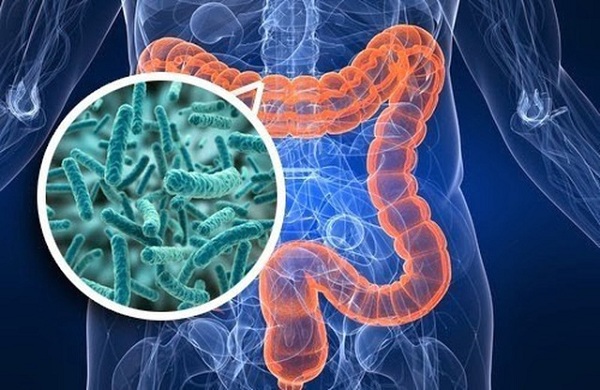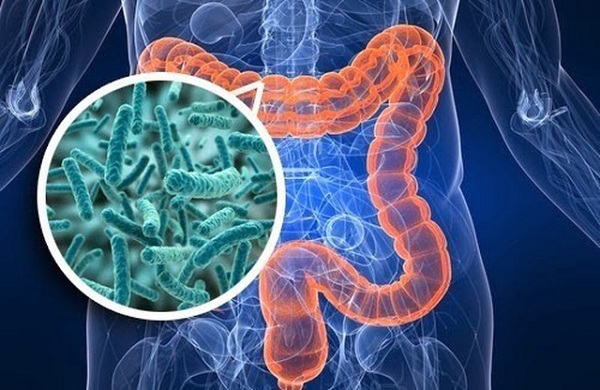6 Natural Ways to Boost Your Immune System
The immune system helps to protect the body from bacterial and viral infections, fight diseases, etc. Therefore, improving resistance and strengthening immunity is very important, especially during the COVID-19 pandemic.
Improve gut health Photo: Collectibles
Note: This post may contain affiliate links, which means if you buy from my link I might make a small commission. This does not affect the price you pay. See the full affiliate disclosure here.
The gut microbiome is a complex community of microorganisms that inhabit the human gastrointestinal tract; plays an important role in immune function. A healthy and balanced gut microbiome is key to ensuring healthy digestion. Furthermore, up to 70–80% of the body’s immune cells are found in the gut.
The gut microbiota varies from person to person, depending on genetics and environmental factors… Changes in these microbial communities can cause immune dysregulation leading to disorders. auto-immune disorder.
A diet rich in plant-based fiber with lots of fruits, vegetables, whole grains, and legumes seems to support the growth and maintenance of beneficial bacteria. These fibers, called prebiotics, are food for beneficial bacteria. Therefore, a diet containing probiotic and prebiotic foods is highly beneficial for a healthy gut microbiome.
Probiotic foods that contain live helpful bacteria include: Kefir, yogurt, fermented vegetables, sauerkraut, tempeh, kombucha tea, kimchi, and miso.
Prebiotic foods that contain fiber and oligosaccharides include: Garlic, onions, leeks, asparagus, Jerusalem artichokes, dandelion greens, bananas, and seaweed. However, eating a variety of fruits, vegetables, beans and whole grains… helps to add prebiotics to the diet.
Avoid processed foods
Photo: Collectibles
A study in the WHO Journal of Nutrition looked at the impact of Western diets and lifestyles on human immune function; found that a large amount of calories found in fast and processed foods can lead to health problems such as: increased inflammation, decreased infection control, increased cancer rates, increased risk of allergic diseases application…
The study authors also point out that food and lifestyle choices have a big effect on the balance of bacteria in the body and can either strengthen or weaken the immune system.
So cut back on fast food and processed foods, and include more natural foods in your diet.
Full of vitamins
Vitamins are essential for life. These organic compounds are usually obtained as part of a balanced diet necessary for biological and metabolic processes.
Vitamins are essential for the normal functioning of the immune system. Immune cells are some of the fastest dividing cells in the body and they need large amounts of vitamins to regenerate and function properly.
Vitamin D: One of the most important vitamins involved in immune health. People with chronic infections often have low levels of vitamin D. You need to get enough vitamin D each by getting plenty of sun exposure and eating foods rich in vitamin D. You can test your vitamin D levels to determine exactly how much you need with medication.
Vitamin A: A biologically active form of vitamin A is retinoic acid. This substance is present in the diet and has a profound effect on the immune system. Retinoic acid is being tested as a potential therapy to treat certain autoimmune diseases such as arthritis, psoriasis, or multiple sclerosis. Foods rich in vitamin A include: Eggs, milk, green vegetables…
Vitamin E: Known for its powerful antioxidant capabilities that have also been shown to have anti-inflammatory properties. You can supplement with pills, but it is better and safer to get this vitamin from natural sources.
Aim for a balanced diet of unprocessed foods that are high in vitamins and antioxidants.
Participate in physical activities
Photo: Collectibles
Physical activity stimulates the immune system and enhances the ability to fight infections.
Exercise has an anti-inflammatory effect. Physical activity has also been linked to reduced levels of C-reactive protein. This is a protein that causes inflammation and stress in your body.
So, practice exercise every day, at least 30-40 minutes a day.
Stress management
Photo: Collectibles
Chronic stress suppresses the body’s immune response by releasing the hormone cortisol. Cortisol interferes with T cells (a type of immune cell) and reduces IGA antibody secretion located in the intestinal tract and respiratory tract (which is the first line of defense against pathogens).
Stress can also have an indirect effect on immune system functioning, as a person may use unhealthy strategies to reduce their stress such as drinking and smoking.
There are many ways to manage stress such as meditation, exercise, YOGA…
Even exercising for 15-20 minutes in the morning 3-4 days a week can get your mind on track and make you more comfortable with the stresses of the day.
Managing stress can help prevent chromosome breakdown that can lead to cancer and premature aging.
Get enough sleep
During sleep, the immune system produces protective, infection-fighting substances such as antibodies and cytokines. It uses these substances to fight bacteria and viruses.
Without enough sleep, your body produces fewer antibodies and cytokines. Long-term sleep deprivation also increases the risk of obesity, diabetes, and cardiovascular disease. The optimal amount of sleep for most adults is 7-8 hours of sleep per night.
Even the healthiest people get sick from time to time, but by tweaking certain aspects of your health habits like diet and stress management, you can help boost your system’s defenses. the immune system fights off bacteria, harmful chemicals, and viruses that cause conditions like the common cold and flu.














